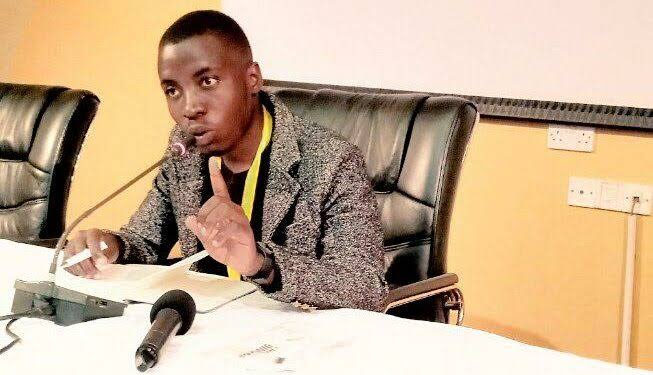By Lukanga Samuel
Whereas politicians do often occupy more spaces to even tackle religious related topics, political and religious leaders are distinguishable according to three criteria: the qualities necessary for appointment, the means or resources invoked by the leader to enforce his authority and the nature of his functions.
In the ideal typical case the religious leader is one whose appointment and authority derive from his religious qualities: piety, knowledge of sacred text and in some cases quasi-prophetic or mystical powers. The ideal qualities of the political leader, even the leader of a religious party, are organizational and administrative abilities, daring, ability to sway followers and decisiveness. The religious leader, even when he has coercive authority, bases his influence primarily on his spiritual qualities. The use of force is less repugnant to a typical political leader.
Election season is upon us, and the next president of the Uganda will be voted on in a matter of years. I love politics. My close collegue makes fun of me when I set my phone alarm to remind me of any political debate. I do not pretend to be an expert, but I do my best to be educated about each candidate. I want to understand their policies, experience, education and, most of all, their character. One thing that troubles me, however, is that some of the leading candidates, including our current president, claim to have God on their side.
Evangelical Christians seem to have the market cornered on the will of God in our society. Their voice is heard through opposing media, and their influence helped send Robert Kyagulanyi to the top opposition leader in the country, but do they speak for God? Does God truly favor the policies of opposition?
As an Adventist and someone who seeks to remain faithful to Christ’s teaching, I wonder, with all the differing views and policies, whose side is God on?
American theologian and teacher Jim Wallis writes, “When the voice of God is invoked on behalf of those who have no voice, it is time to listen. But when the name of God is used to benefit the interests of those who are speaking, it is time to be very careful. The crucial difference is who benefits from the voice of God being spoken and heard.” For those of us who seek to allow our faith in God to guide our politics, perhaps we should consider who is benefiting from the policies being promoted by these competing politicians.
Does God favor the privileged majority, or does God side with the marginalized and minority groups of our society?
According to the Apostle Paul, if we want to know what God is like, then we must look to the person of Christ, who never stood with those in power. We never saw him defend the interests of the religious or political elite. In fact, he repeatedly spoke out against powerful institutions in order to advocate for the poor and the marginalized people of society.
The only people Christ ever seemed to condemn were religious leaders. When Christ was confronted by those in power in their many attempts to deceive him, he always sided with the powerless.
Jesus invited poor and uneducated fishermen to be his closest companions and disciples. He touched lepers, healed the mentally disturbed and restored them to their rightful place in the community. Jesus freely forgave and empowered one woman caught in the act of adultery and another woman found guilty of sexual promiscuity. He forgave and blessed prostitutes and thieves, and he praised the good Samaritan who crossed cultural and socioeconomic boundaries to rescue a man in need, asking nothing in return. I could go on.
We can trust the voice of God only when that voice is leading us to love and serve the least of us. According to Scripture, God does not advocate for an increase in our personal wealth. Christ taught us to give away our possessions to the poor. The redistribution of wealth and power is promoted throughout the Bible. Neither does God favor closed borders to protect our national interests. Rather, Christ commanded that we always show hospitality to strangers, welcoming them as we would our own family.
If the voice of God does not guide us deeper into the forgotten corners of society or encourage us to stand in solidarity with the oppressed, then perhaps we have misheard.
As we consider which politician might receive our endorsement in this and next two years, perhaps the question we should be asking is who is benefiting from their policies. Christ stood in solidarity with the poor and powerless. Shouldn’t the politicians we support do the same?
For God and My Country, Uganda!
Do you have a story or an opinion to share? Email us on: dailyexpressug@gmail.com Or follow the Daily Express on X Platform or WhatsApp for the latest updates.
Lukanga Samuel / lukangasamuel55@gmail.com is an Ambassordor of Humanity, a Social Development Enthusiast

